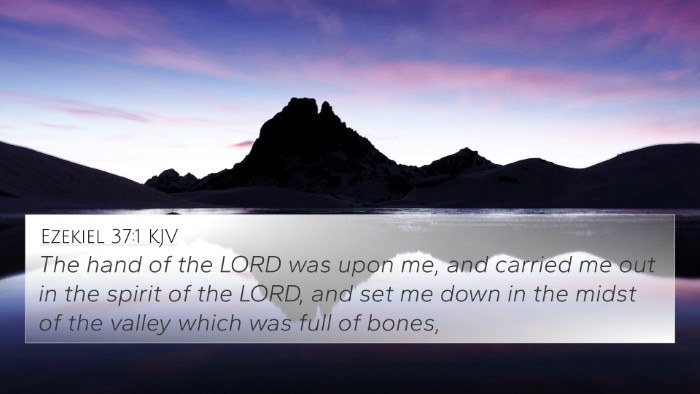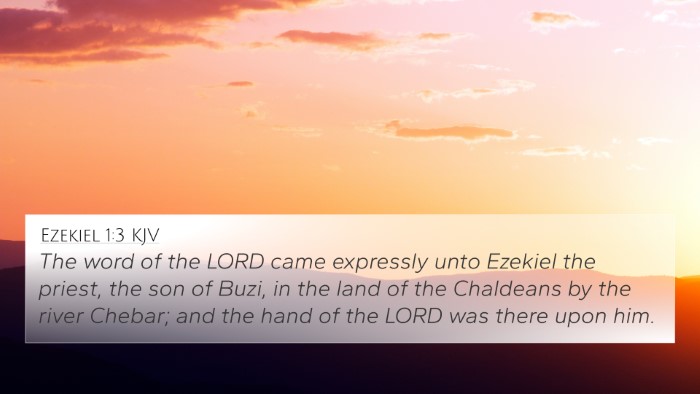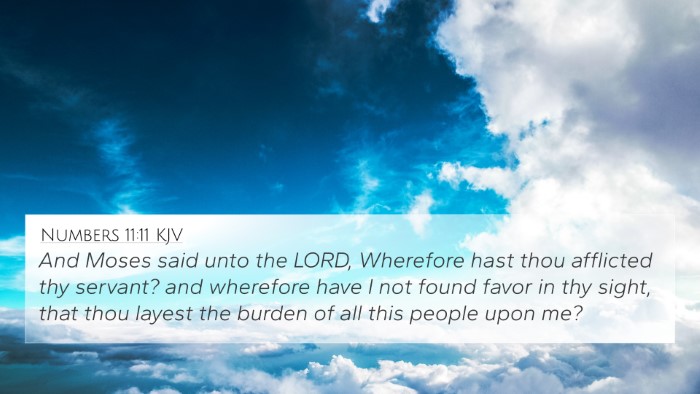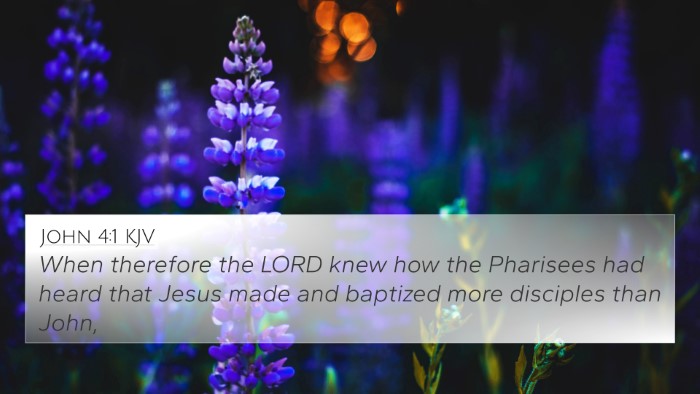Ezekiel 3:14 - Verse Meaning and Commentary
Bible Verse: Ezekiel 3:14
Verse Text: "So the spirit lifted me up and took me away, and I went in bitterness, in the heat of my spirit; but the hand of the Lord was strong upon me."
Summary of Meaning
The verse captures a profound moment in Ezekiel’s prophetic ministry, where he experiences an overwhelming mix of divine commission and personal turmoil. The lifting of the spirit indicates a supernatural empowerment, while the emotion of bitterness reflects Ezekiel's struggle with the weight of his prophetic calling.
Interpretation from Public Domain Commentaries
Matthew Henry's Commentary
Matthew Henry explains that the lifting of the spirit signifies divine encouragement and support as Ezekiel embarks on a difficult task. The "bitterness" he feels suggests a recognition of the sorrow and rebellion prevalent among the people of Israel, amplifying the burden of his mission. The "hand of the Lord" represents God's enabling power, assuring Ezekiel that he is not alone in this daunting calling.
Albert Barnes' Notes
Albert Barnes emphasizes the duality of Ezekiel's experience; he is both empowered and tormented. He points out that the "spirit" taking him away indicates a transition into a divine experience, yet the "bitterness" signifies a personal conflict with the disobedience of God's people. Barnes also notes that the strong hand of the Lord is indicative of divine guidance amidst this turmoil.
Adam Clarke's Commentary
Adam Clarke adds that the bitterness reflects Ezekiel's emotional response to the hard-heartedness of the people he is to prophesy to. He draws attention to how despite the emotional struggle, the hand of the Lord provides strength and assurance, enabling Ezekiel to fulfill his prophetic duties effectively.
Related Bible Verses
- Ezekiel 1:3: "The word of the Lord came expressly unto Ezekiel the priest, the son of Buzi, in the land of the Chaldeans by the river Chebar; and the hand of the Lord was there upon him." - This verse indicates the power and presence of God in Ezekiel's life.
- Isaiah 61:3: "To appoint unto them that mourn in Zion, to give unto them beauty for ashes, the oil of joy for mourning, the garment of praise for the spirit of heaviness..." - This resonates with the notion of being burdened by the people's sins.
- Jeremiah 20:9: "Then I said, I will not make mention of him, nor speak any more in his name. But his word was in my heart as a burning fire shut up in my bones..." - Jeremiah also experienced passionate inner conflict as a prophet.
- Acts 20:23: "Save that the Holy Ghost witnesseth in every city, saying that bonds and afflictions abide me." - Paul shared a similar burdensome experience in his ministry.
- Habakkuk 1:3: "Why dost thou show me iniquity, and cause me to behold grievance? for spoiling and violence are before me..." - This reflects the burden of witnessing evil and injustice.
- Romans 9:2-3: "That I have great heaviness and continual sorrow in my heart. For I could wish that myself were accursed from Christ for my brethren, my kinsmen according to the flesh..." - Paul’s sorrow for his people mirrors Ezekiel’s struggle.
- 2 Corinthians 2:4: "For out of much affliction and anguish of heart I wrote unto you with many tears..." - This emphasizes the emotional toll of being a messenger of God.
Conclusion
Ezekiel 3:14 embodies the tension of prophetic calling—a blend of divine empowerment and emotional anguish. This complexity highlights the significant emotional undertones that accompany a prophet’s mission, showcasing that the duty of proclaiming God's message can often lead to personal strife, yet is countered by divine support.
Cross-Referencing Biblical Texts
To grasp the depth of Ezekiel’s experience, one can utilize cross-referencing Biblical texts to explore thematic connections throughout Scripture. This practice enriches understanding and provides a comprehensive view of how individual verses relate within the broader narrative of God's message.
In summary, understanding Ezekiel 3:14 through various commentaries and cross-referencing with related verses offers a nuanced view of prophetic ministry, revealing both the burden of the message and the sustaining strength granted by God.

















